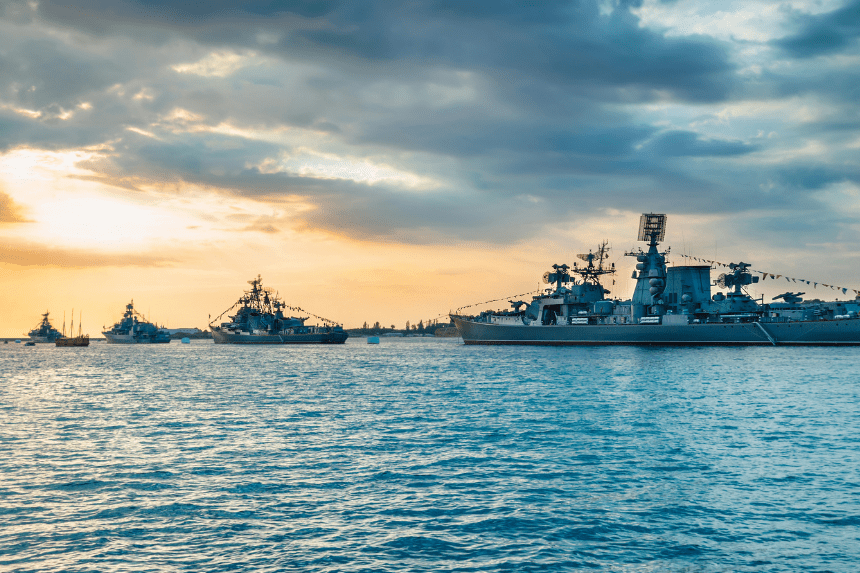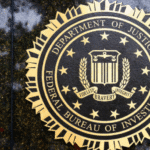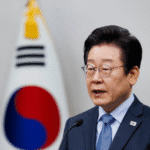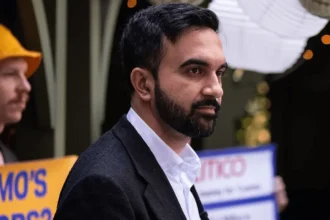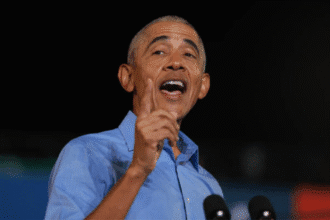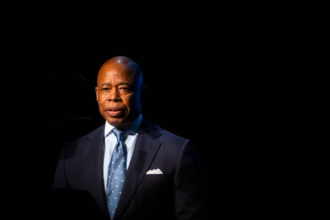Plans have been announced to change the name of a US Navy ship named after Harvey Milk, a veteran who pushed for gay rights. This has led to intense debate, which reflects the continuing arguments about how traditions, rights, and politics relate to the military. Because Harvey fought for gay rights and was a Navy veteran, the ship was given a name that represented progress and included all. But different opinions in military leadership and pressure from politics have led to a re-examination of this seriousness. This writing focuses on why the name was changed, what it means for the military and LGBTQ+ people, and what it says about the broader culture..
- Why Was the Ship Originally Named After Harvey Milk?
- What Led to the Decision to Rename the Ship?
- What Are the Reactions from the LGBTQ+ Community and Allies?
- How Does This Reflect Broader Trends in Military and Political Policies?
- What Are the Potential Impacts on Military Morale and Recruitment?
- What Does This Mean for Future Military Recognition of Civil Rights Leaders?
- How Can the Military Promote Inclusivity While Respecting Tradition?
- Conclusion: What Does the Renaming Decision Signify for Society?
Why Was the Ship Originally Named After Harvey Milk?
Calling a Navy ship the Harvey Milk was an important decision historically. He was at the forefront of civil rights, and in the 1950s, he also served in the Navy. Having a vessel named after him was taken as an important sign of support for LGBTQ+ soldiers, who have suffered discrimination in the military. Calling the ship after a historic figure promoted diversity and honored how LGBTQ+ people helped keep the country safe. It was meant to show that the military was open to change and diversity, reflected in the selection of notable diverse individuals.
What Led to the Decision to Rename the Ship?
Political and military factors have affected the decision to give it a new name. A number of critics think that labeling a military asset after a prominent figure of civil rights activism could spark controversy. Also, shifting military leadership goals and pressure from external politics have influenced this choice. Some people were concerned that honoring nonpartisan values in the military and traditional heroes would be difficult. This choice shows that there is an ongoing disagreement about wanting positive social progress and protecting customs in the military. This debate also points out that political views may affect choices about military issues, for example, in deciding how to name ships.
What Are the Reactions from the LGBTQ+ Community and Allies?
People who support the LGBTQ+ community are highly emotional about the decision to rename the ship that honored Harvey Milk. Various individuals see renaming the troops as a negative change for gay, lesbian, bisexual, and transgender visibility and recognition. Milk is still an inspiring figure for the movement for equality, and the decision to name a Navy ship after him was an important achievement for the community. Some say that changing the name harms the goal of fostering inclusivity and respect among military members. For several, this change leads them to worry about how LGBTQ+ rights will be handled in public institutions and if some recent gains might be taken back. LGBTQ+ supporters keep calling for equal recognition of the contributions made by members of the community in the military and society. Read another article on K-pop Diversity
How Does This Reflect Broader Trends in Military and Political Policies?
This is just one of many times political factors have shaped how the military is run. The military follows changes happening in the wider society, yet it also has to preserve its traditions and remain neutral. Naming and renaming of ships and bases now tend to be politically charged, showing disagreements about representing history and values in public institutions. These shifts take place while there are changes in rules for LGBTQ+ service members and other minority groups in the military. This case demonstrates how social and political differences can be seen in the military and affect troops’ morale, recruiting, and how people view the military.
What Are the Potential Impacts on Military Morale and Recruitment?
Symbolism plays a big role in the military, since it reflects a strong sense of pride, traditional ways, and identity. Calling the ship after Harvey Milk represented a good step forward in including a wider group of people and possibly encouraging them to join the service. Changing the names might cause different reactions: while those who prefer more traditional names could feel better, that could make others feel left out. Allowing all service members to be represented shows that every identity is important. Eliminating such images may also make it harder to form a diverse and unified military. The military has to address these effects to keep members united and effective.
What Does This Mean for Future Military Recognition of Civil Rights Leaders?
The debate over renaming the Harvey Milk ship gets people thinking about how the military should deal with civil rights leaders as examples going forward. Giving appropriate respect to people from history often runs up against the need to avoid taking political positions. The decision could impact who is recognized in the future and how that reflects the beliefs of the military. It also shows how tradition and recent changes must be balanced, as the military tries to value all its personnel without losing some members or parts of the public. Someone may keep a close eye to see if the same thing happens with other statues or monuments.
How Can the Military Promote Inclusivity While Respecting Tradition?
It demonstrates how it can be hard to properly respect history and also support all members of the community. The military should try to create a setting where every service member feels accepted and acknowledged. This means recognizing the roles of marginalized groups and supporting the main values and history that all members of the armed forces have in common. Inclusivity, discussions, and well-thought-out policies play a key role in reaching this balance. Going forward, the military may want to make naming its honors clearer and involve a wider range of people to support decisions that bring members of the force together and uphold common values.
Conclusion: What Does the Renaming Decision Signify for Society?
The new name for the Navy ship honoring Harvey Milk shows that debates about how society views identity, history, and progress are common. It points out that the meaning of symbols found in powerful institutions, like the military, is deeper than what they are used for. It encourages looking at our views on diversity, the rate at which society develops, and the interaction between politics and public administration. While people are divided over the decision, it allows for new talks about including more groups, ensuring representation, and rethinking American historical heroes. Moving ahead will involve talking, learning about each other, and choosing togetherness.


